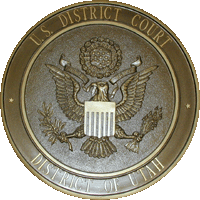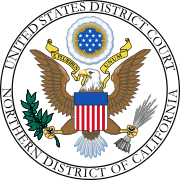
SCO v. Novell was a United States lawsuit in which the software company The SCO Group (SCO), claimed ownership of the source code for the Unix operating system. SCO sought to have the court declare that SCO owned the rights to the Unix code, including the copyrights, and that Novell had committed slander of title by asserting a rival claim to ownership of the Unix copyrights. Separately, SCO was attempting to collect license fees from Linux end-users for Unix code through their SCOsource division, and Novell's rival ownership claim was a direct challenge to this initiative. Novell had been increasing their investments in and support of Linux at this time, and was opposed to SCO's attempts to collect license fees from Novell's potential customers.
A legal remedy, also referred to as judicial relief or a judicial remedy, is the means with which a court of law, usually in the exercise of civil law jurisdiction, enforces a right, imposes a penalty, or makes another court order to impose its will in order to compensate for the harm of a wrongful act inflicted upon an individual.
The Private Securities Litigation Reform Act of 1995, Pub. L.Tooltip Public Law 104–67 (text)(PDF), 109 Stat. 737 ("PSLRA") implemented several substantive changes in the United States that have affected certain cases brought under the federal securities laws, including changes related to pleading, discovery, liability, class representation, and awards fees and expenses.
A cause of action or right of action, in law, is a set of facts sufficient to justify suing to obtain money or property, or to justify the enforcement of a legal right against another party. The term also refers to the legal theory upon which a plaintiff brings suit. The legal document which carries a claim is often called a 'statement of claim' in English law, or a 'complaint' in U.S. federal practice and in many U.S. states. It can be any communication notifying the party to whom it is addressed of an alleged fault which resulted in damages, often expressed in amount of money the receiving party should pay/reimburse.
In law, scienter is a legal term for intent or knowledge of wrongdoing. An offending party then has knowledge of the "wrongness" of an act or event prior to committing it.

The Employment Rights Act 1996 is a United Kingdom Act of Parliament passed by the Conservative government to codify existing law on individual rights in UK labour law.
Pando v. Fernandez, 127 Misc.2d 224, is a New York case that arose when Christopher Pando, a deeply religious minor, sought to impose a constructive trust on the proceeds of a winning $2.8 million ticket that he purchased with Dasyi Fernandez's money. Pando alleged that Mrs. Fernandez agreed to share the prize money equally with him if he prayed to a saint to cause the numbers he picked for her to be the winning numbers. At the time that Pando purchased the ticket, Mrs. Fernandez was 38 and the mother of three children on welfare. Christopher Pando was 16 and was a friend of her son. Mrs. Fernandez denied that she ever asked Pando to buy the tickets or pick the numbers, and also denied the fact that she offered to share her money with him.
The following outline is provided as an overview of and introduction to tort law in common law jurisdictions:

Facebook, Inc. v. Power Ventures, Inc. is a lawsuit brought by Facebook in the United States District Court for the Northern District of California alleging that Power Ventures Inc., a third-party platform, collected user information from Facebook and displayed it on their own website. Facebook claimed violations of the CAN-SPAM Act, the Computer Fraud and Abuse Act ("CFAA"), and the California Comprehensive Computer Data Access and Fraud Act. According to Facebook, Power Ventures Inc. made copies of Facebook's website during the process of extracting user information. Facebook argued that this process causes both direct and indirect copyright infringement. In addition, Facebook alleged this process constitutes a violation of the Digital Millennium Copyright Act ("DMCA"). Finally, Facebook also asserted claims of both state and federal trademark infringement, as well as a claim under California's Unfair Competition Law ("UCL").

Goddard v. Google, Inc., 640 F. Supp. 2d 1193, is a case in which Jenna Goddard ("Plaintiff") alleged that she and a class of similarly situated individuals were harmed by Google ("Defendant") as a result of clicking allegedly fraudulent web-based advertisements for mobile subscription services ("MSSPs"). The United States District Court for the Northern District of California held that the action was barred by Section 230 of the Communications Decency Act ("CDA") and dismissed the complaint without leave to amend.

Facebook, Inc. v. StudiVZ Ltd. was a federal lawsuit filed on July 18, 2008, by Facebook, Inc. in the United States District Court for the Northern District of California against StudiVZ Ltd., a UK company with its principal place of business in Germany. StudiVZ had launched a website which was alleged to be visually and functionally similar to Facebook's site. Facebook filed a similar lawsuit the same day in the German regional court of Stuttgart and an additional related lawsuit on November 19, 2008, in the German regional court of Cologne. In May 2009 the District Court in California issued an order indicating its view that Germany was the more appropriate forum for the dispute, but withheld issuing a final order on the question until further review of the issues of personal jurisdiction could be addressed. The parties subsequently settled the California case, but continued the litigation in Germany in which the regional court of Cologne held that StudiVZ did not violate any intellectual property rights held by Facebook.

Lane vs. Facebook was a class-action lawsuit in the United States District Court for the Northern District of California regarding internet privacy and social media. In December 2007, Facebook launched Beacon, which resulted in users' private information being posted on Facebook without the users' consent. Facebook ended up terminating the Beacon program and created a $9.5 million fund for privacy and security. There was no monetary compensation awarded to Facebook users affected negatively by the Beacon program.

Swift v. Zynga is an 2011 class action lawsuit filed in 2009, based on allegedly deceptive ads that ran in Zynga games on Facebook. A motion by Zynga to dismiss the case was denied by the United States District Court for the Northern District of California in November 2010.

Ouellette v. Viacom, No. 9:10-cv-00133; 2011 WL 1882780, found the safe harbor provision of the Digital Millennium Copyright Act (DMCA) did not create liability for service providers that take down non-infringing works. This case limited the claims that can be filed against service providers by establishing immunity for service providers' takedown of fair use material, at least from grounds under the DMCA. The court left open whether another "independent basis of liability" could serve as legal grounds for an inappropriate takedown.
Whether providing services as an accountant or auditor, a certified public accountant (CPA) owes a duty of care to the client and third parties who foreseeably rely on the accountant's work. Accountants can be sued for negligence or malpractice in the performance of their duties, and for fraud.
In law, wrongful dismissal, also called wrongful termination or wrongful discharge, is a situation in which an employee's contract of employment has been terminated by the employer, where the termination breaches one or more terms of the contract of employment, or a statute provision or rule in employment law. Laws governing wrongful dismissal vary according to the terms of the employment contract, as well as under the laws and public policies of the jurisdiction.
Fry v. Napoleon Community Schools, 580 U.S. 154 (2017), is a United States Supreme Court case in which the Court held that the Handicapped Children's Protection Act of 1986 does not command exhaustion of state-level administrative remedies codified in the Individuals with Disabilities Education Act (IDEA) when the gravamen of the plaintiff's lawsuit is not related to the denial of free appropriate public education (FAPE).
Wilding et al. v. DNC Services Corporation, et al., was a class action lawsuit filed in 2016 against the Democratic National Committee and Debbie Wasserman-Schultz. The plaintiffs, a group of Bernie Sanders supporters, claimed they have been defrauded in the 2016 Democratic presidential primaries.
Scheck v. Burger King Corp. (756 F. Supp. 543 was a case of the United States District Court for the Southern District of Florida in which it considered motions for summary judgement brought by defendant Burger King Corporation concerning four counts raised by Plaintiff Scheck who alleged that defendant "breached an implied non-competition agreement, an implied covenant of good faith and fair dealing an implied contract created by promissory estoppel and the Massachusetts Consumer Protection Act" which plaintiff alleged incorporates the proceeding three claims. Burger King moved for summary judgement on the basis that Scheck's claims were insufficient "as a matter of law", were barred by the Massachusetts Statute of Frauds, or were released by the plaintiff as a direct result of two releases executed by Scheck in 1985 and 1986, respectively. The case invoked legal questions concerning the covenant of good faith and fair dealing related to legal protection of the territory rights of franchisees.

Ashley Gjøvik is an American program manager who is known for filing more than a dozen legal complaints against her former employer, Apple Inc. Notable complaints include a dismissed whistleblower complaint and two meritorious labor board charges about employee rules, which are pending prosecution. Gjøvik was terminated in 2021 by Apple for allegedly leaking confidential intellectual property, which she denies. She alleges her firing was retaliation for speaking out against the company about sexism, employee privacy, and vapor intrusion at an Apple office on a Superfund site, which the United States Environmental Protection Agency concluded was not occurring.






